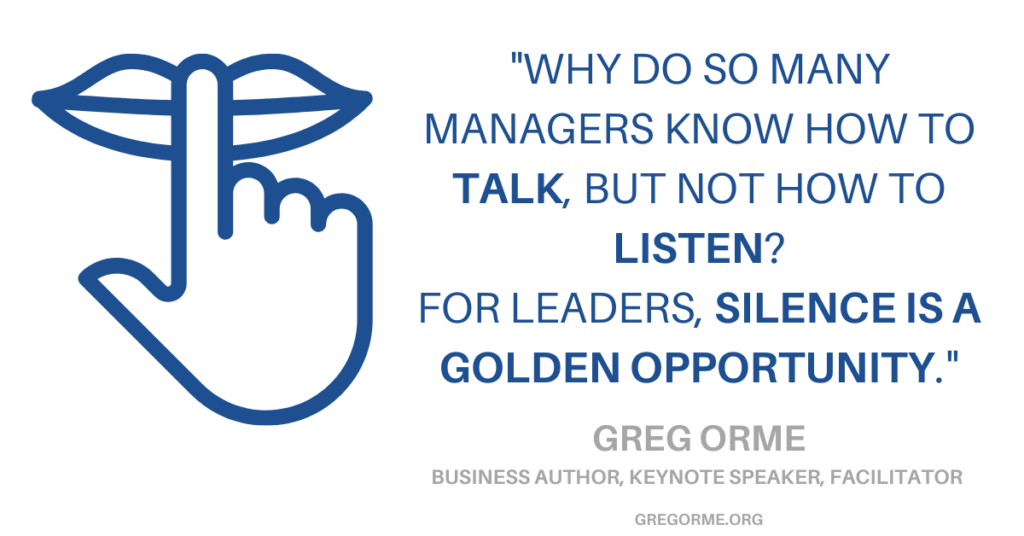Why silence is golden for leaders
Home // Why silence is golden for leaders
- Greg Orme
Why do so many managers know how to talk, but not how to listen? How many meetings have you attended in which the person occupying the power seat is a disastrous communicator?
This is sometimes true even when they’re nominally ‘asking a question’.
The question is asked.
A nanosecond goes by…
…and the manager simply ploughs on.
What’s lost? A a precious chance to hear another viewpoint. The more often a manager fills the silence with his or her own thoughts. The less likely they’ll hear a voice other than their own.
Next time you pose a question (especially if you are the leader of a group) STOP. Leave a pause. Breath.
Carers learn it. Coaches learn it. Journalists learn it. It’s a simple, but magical, technique.
Don’t say another word until the person who as posed the question speaks. Stay quiet, even if it feels a little uncomfortable.
The more interesting your question, the longer it often takes for people to process and to respond. We live in a world where quiet pauses are often filled to avoid embarrassment (or, worse, where the question wasn’t really a question at all).
When exploring the minds of other people, silence is truly golden.

This blog is adapted from my second book The Human Edge: How curiosity and creativity are your superpowers in the digital economy (Pearson) which won the Business Book of The Year 2020.
All right reserved Copyright © 2020 Greg Orme
Related posts

Does Your Busy Culture Undermine Mental Health?
4 min read – As we move into the post-pandemic era, the ability to feel or imagine another person’s emotional experience will become even more important.

For Happiness In Tough Times, Be More Grateful
4 min read – As we move into the post-pandemic era, the ability to feel or imagine another person’s emotional experience will become even more important.

Caring Got Cool: Diverse, Remote Teams Make Empathy A Vital Skill For Managers
4 min read – As we move into the post-pandemic era, the ability to feel or imagine another person’s emotional experience will become even more important.